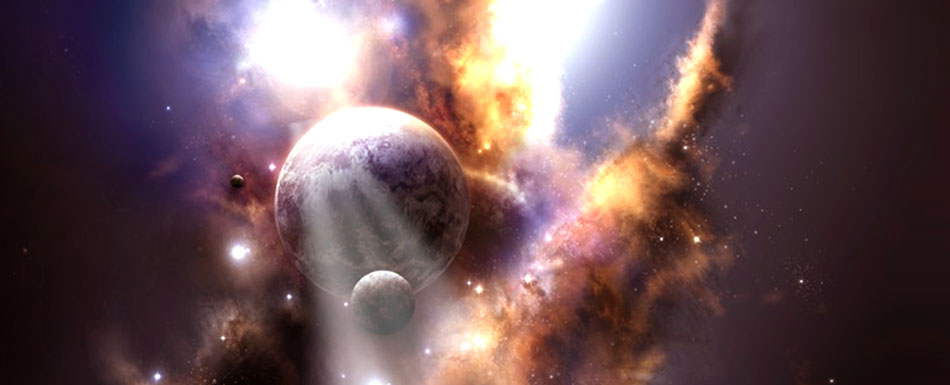Sidratu’l-Muntaha (The Lote-Tree of the Furthest Limit)

Sidr literally means Arabian cherry; it also means astonishment or something that is spectacular. Sidratu’l-Muntaha denotes the limit, the final point, the furthest boundary of the realm of contingencies. Some have interpreted it as the final point which death-bound beings can reach. Based on certain Prophetic sayings and reports from either the Prophet, upon him be peace and blessings, or from some of his Companions, the illustrious interpreters of the Qur’an depict Sidratu’l-Muntaha as a blessed tree which exists to the right of God’s Supreme Throne and below which flow the rivers of Paradise, which have been promised to the God-revering, pious. In order to emphasize the extent of the area it covers, our master, upon him be the most perfect of blessings and peace, says: “If a horseman were to gallop for seventy years across its shadow, he would not be able to traverse it; a single leaf of it can cover an entire nation.”[1] If we use greater units of measurement to express the extent of the area it covers, we would not be exaggerating. For the Sidra marks the farthest boundary of the realm of creation; here it meets with the realm of the initial manifestations of Divine Commands. The realm of contingencies ends here. The branches, shoots, and leaves of the huge tree of creation, which extends in all directions, end here. Also, the views of saintly people who deepen in spirituality and those with progressive hearts who can penetrate the inner dimension of things can extend only this far. The perfected ones, who are always careful of where they put their feet and how they take each step on the way to God, stop at this boundary, without being able to take a single step further. Everyone breathes with amazement here. For what lies beyond is included in the realm of the absolute Unseen, which none other than God can know.
Another meaning of the Sidratu’l-Muntaha is that it signifies such a horizon of astonishment and amazement, and such a peak of passion and stupor that “there is neither space in it nor heavens and earth; and no mind can grasp this state” (Süleyman Çelebi[2]). Of the many heroes of spirituality that have emerged from humanity from the beginning of existence, none other than the Honor and Pride of Humankind, and the Peerless of Time and Space, upon him be the most perfect blessings and peace, has ever been able to rise as far as that horizon or reach that peak. Those who have reached it in their spirit have been dazzled and bewildered, being stuck in amazement and stupor. It was only the Pride of Humankind whose sight did not swerve, nor did it go wrong; indeed, he saw one among the greatest signs of His Lord (53:17–18). The point where he reached was Sidratu’l-Muntaha, which, in the words of Bediüzzaman, marks the sacred horizon between the absolutely Necessary Existence and contingency. The first and last traveler who reached this peak is the Seal of Prophethood, for whose sake the worlds were created. No one preceding him and no one succeeding him has a share in this status. How beautiful is the following couplet by Süleyman Çelebi:
No one who came before him attained this highest status;
No one has ever been favored with this height.
It is not possible for us to be able to imagine either the depths of Prophet Muhammad’s spirituality or the things he saw and heard or his experiences. We preserve our perceptions and experiences and try to understand them according to the interpretations of purified, saintly scholars.
According to some Sufis, Sidratu’l-Muntaha is the horizon where God Almighty favors the outer and inner worlds of His noble, distinguished servants and their spirits, souls, minds, imaginations, and original natures with the manifestations of, respectively, his Names the All-Outward and the All-Inward, and of His proper Name, His Attribute of Lordship, and His Names the All-Merciful and the Ultimate Truth. It is also the peak where God manifests His Attributes of Glory. No matter how profound and extensive emotions may be, all human information, knowledge, sensations and perceptions end at the Sidratu’l-Muntaha and cannot go beyond. Any claims to have gone beyond this horizon only relate to particular spiritual experiences in certain exceptional states of spiritual intoxication, and have therefore no objective value.
[1] at-Tabari, Jami‘u’l-Bayan, 15:10; Ibn Kathir, Tafsiru’l-Qur’an, 3:20.
[2] Süleyman Çelebi (1351–1422) is the writer of the famous Mawlid (whose original name is Wasilatu’n-Najat (“The Means of Salvation”). He lived in Bursa, Turkey. Mawlid, which was composed and is widely read in Turkey on certain occasions is a long poetical history of the Prophet Muhammad’s life and his matchless virtues and achievements. (Tr.)
- Created on .
